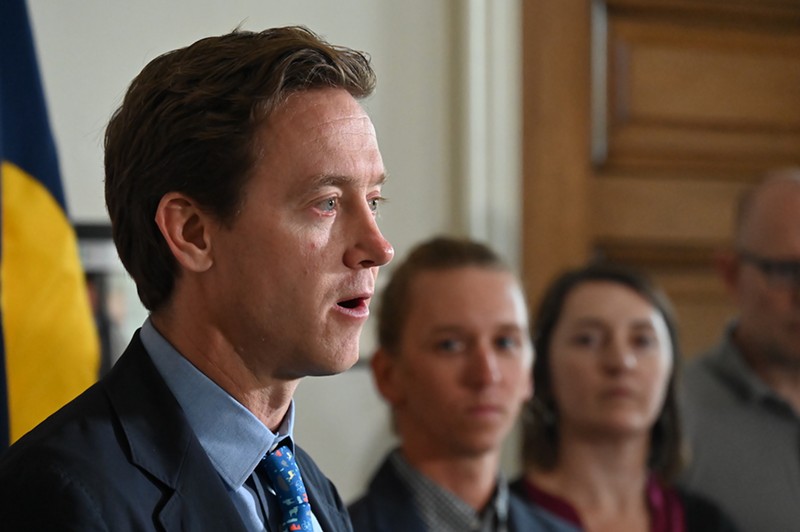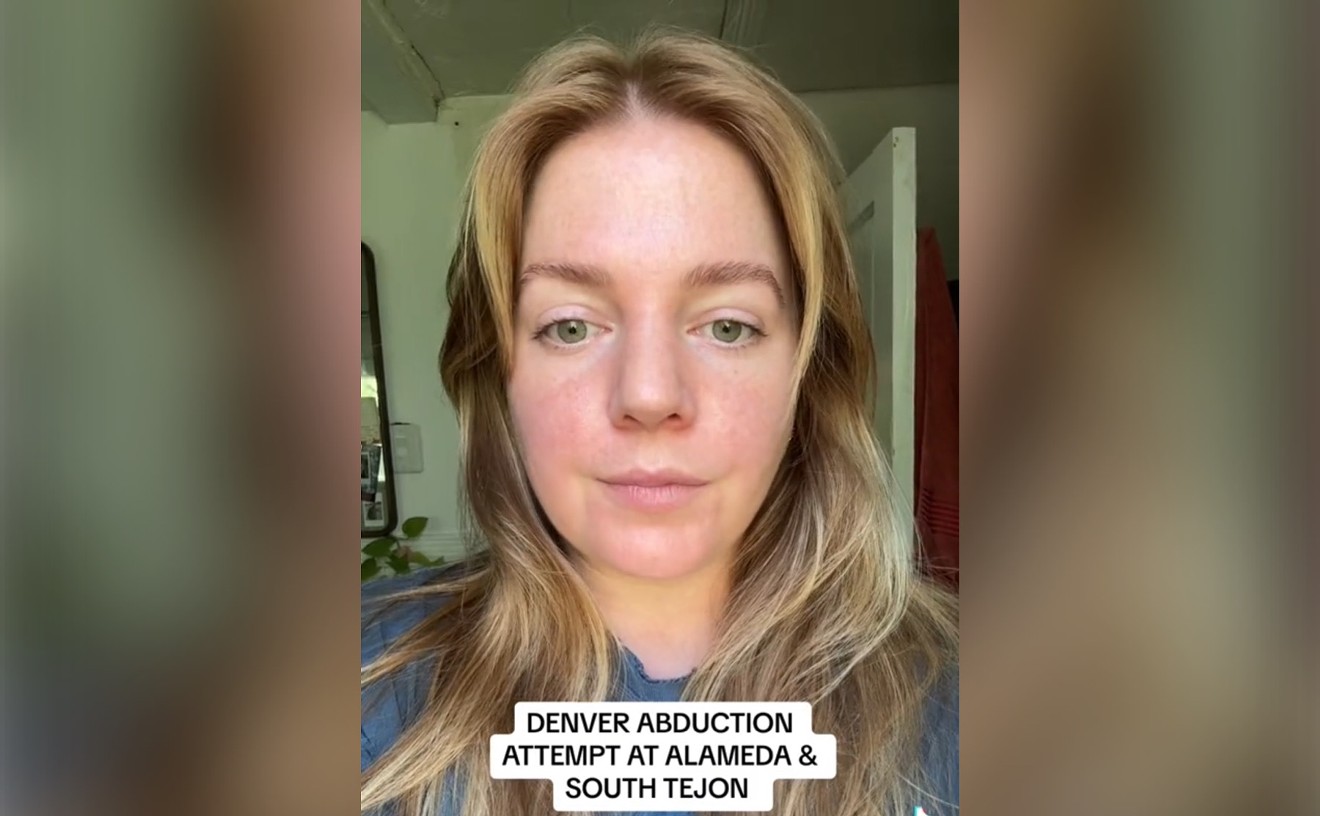Love it or hate it, Mike Johnston's House1000 initiative is coming back for another year.
The Denver mayor and his homelessness resolution team brainstormed what 2024 would look like as he rolled out his ambitious housing plan over the fall, setting aside $247 million for the Department of Housing Stability, or HOST, up from what he'd originally projected in September.
By the end of the week, Johnston plans to push past the 800 mark for his House1000 plan with a series of sweeps that are expected to bring in more than 300 residents. His administration has four more sweeps scheduled for next week.
The 1,000 residents that Johnston expects to house by the end of the year will stay almost entirely at converted hotel rooms, with a few having been sent to transitional housing owned by the Colorado Village Collaborative. The mayor's senior adviser on homelessness resolution, Cole Chandler, told Westword last month that 2024 will have “a lot of the elements that we’ve outlined here” in 2023, including a plan to bring another 1,000 homeless residents indoors.
The Denver mayor and his homelessness resolution team brainstormed what 2024 would look like as he rolled out his ambitious housing plan over the fall, setting aside $247 million for the Department of Housing Stability, or HOST, up from what he'd originally projected in September.
Johnston will be drawing from HOST’s coffers to fund most of his plan in 2024. According to HOST's 2024 action plan, the budget for battling homelessness includes $96 million to open and operate micro-communities and converted hotels, $56 million for rental and housing assistance — like vouchers and eviction prevention money — and $69 million to preserve and develop affordable units like those owned by nonprofits.
According to the federally funded Point in Time count, the City of Denver has about 6,000 homeless residents out of 9,000 across the metro area, and about 1,400 of them are unsheltered; another 4,400 are in temporary housing like shelters.
By the end of the week, Johnston plans to push past the 800 mark for his House1000 plan with a series of sweeps that are expected to bring in more than 300 residents. His administration has four more sweeps scheduled for next week.
The 1,000 residents that Johnston expects to house by the end of the year will stay almost entirely at converted hotel rooms, with a few having been sent to transitional housing owned by the Colorado Village Collaborative. The mayor's senior adviser on homelessness resolution, Cole Chandler, told Westword last month that 2024 will have “a lot of the elements that we’ve outlined here” in 2023, including a plan to bring another 1,000 homeless residents indoors.
“Since day one, the strategy we talked about was the encampment resolution program, it was the hotel strategy, the leased units strategy, the micro-community strategy,” Chandler said. “So you’ll see all those elements continue to play out, but becoming more effective and larger in scale.”
Encampment resolutions, which refer to sweeps that send people to housing, “will continue all throughout next year” and “all throughout the administration,” according to Chandler. In 2023, the Johnston administration expects to have carried out about twelve encampment resolutions, though various other types of sweeps have taken place.
“We will close camps through housing resources,” Chandler said. “That means that we will need to continue bringing housing resources online.”
Micro-communities are also “one of the things that you’ll see more of” in 2024, Chandler added, and “you’ll see more hotels” used to temporarily house homeless residents. “We’ve attached a historic windfall of housing resources to these particular hotels and micro-communities,” he explained.
Although Johnston revealed plans for ten micro-communities in August, neighborhood complaints and costs whittled that down to four, with three of those being delayed until January 2024 if the city’s newest plans play out.
The city plans to open another 220 micro-community units, according to Chandler, each of which can house one or two people. Most of the micro-community sites that the city has planned so far consist of forty to sixty units, with one expected to grow to 120 units after June 2024. Chandler says he isn't sure exactly how many micro-communities will open in 2024.
As far as converted hotels go, Chandler said the city wants to open “several hundred hotel units, so hotels are really playing a more critical role in this strategy." Denver is ending 2023 with six hotels that the city is using to shelter homeless residents, all of which are contracted through 2024 as well, according to the Homelessness Resolution Operations Center.
“We’re finding the hotels have more units in them, and so you get more in a single site,” Chandler said. “They also have less pressure from neighborhoods because they already exist, they’re already built, and sometimes in less residential areas.”
The Johnston administration reports that it secured at least 1,100 units from hotels since July that are being used to move people indoors. The next phase will begin in 2024 for those homeless residents, starting them on the path towards permanent housing with leased units.
“Another key piece of the strategy is leased units,” Chandler said. “You’ll see people coming out of [micro-community and hotel] sites and into their own leased units.”
Housing Connector, a Seattle tech company, will help the city find 400 units over the next five months to lease out to homeless residents through 500 housing vouchers that Johnston announced in November.
“You’ll see people transition out into permanent housing,” Chandler said. “You’ll see some people going straight from the streets into permanent leased units as well over the next year. We’re actually allocating resources directly to that street level, too.”












